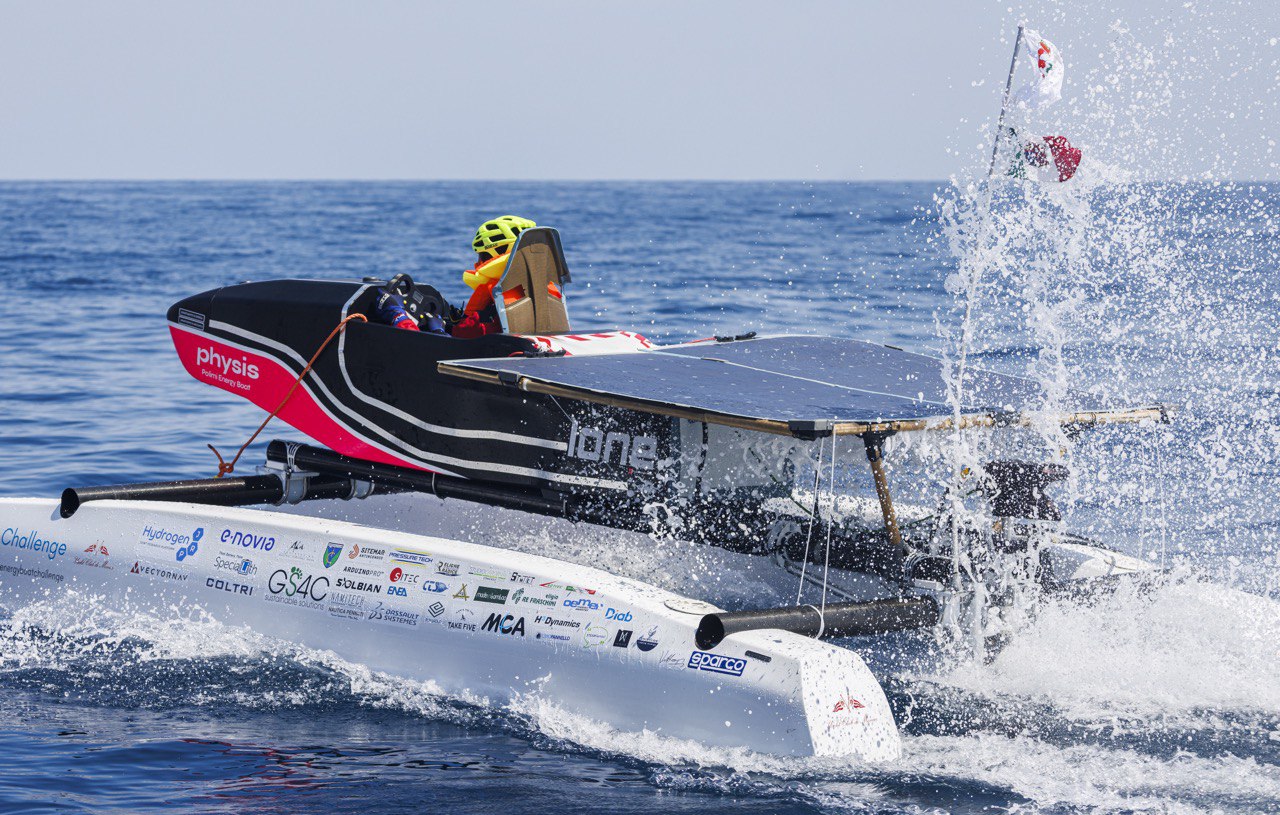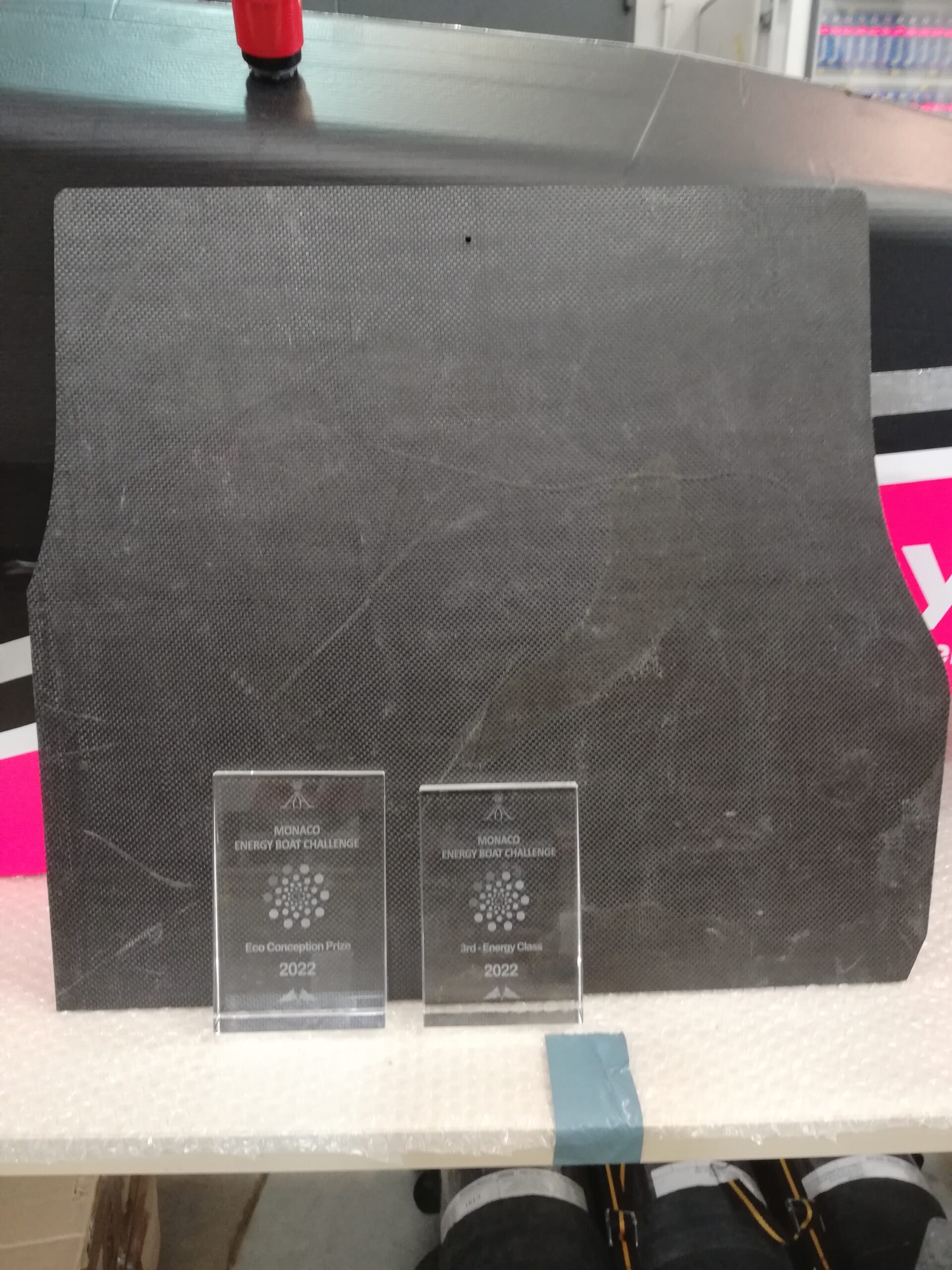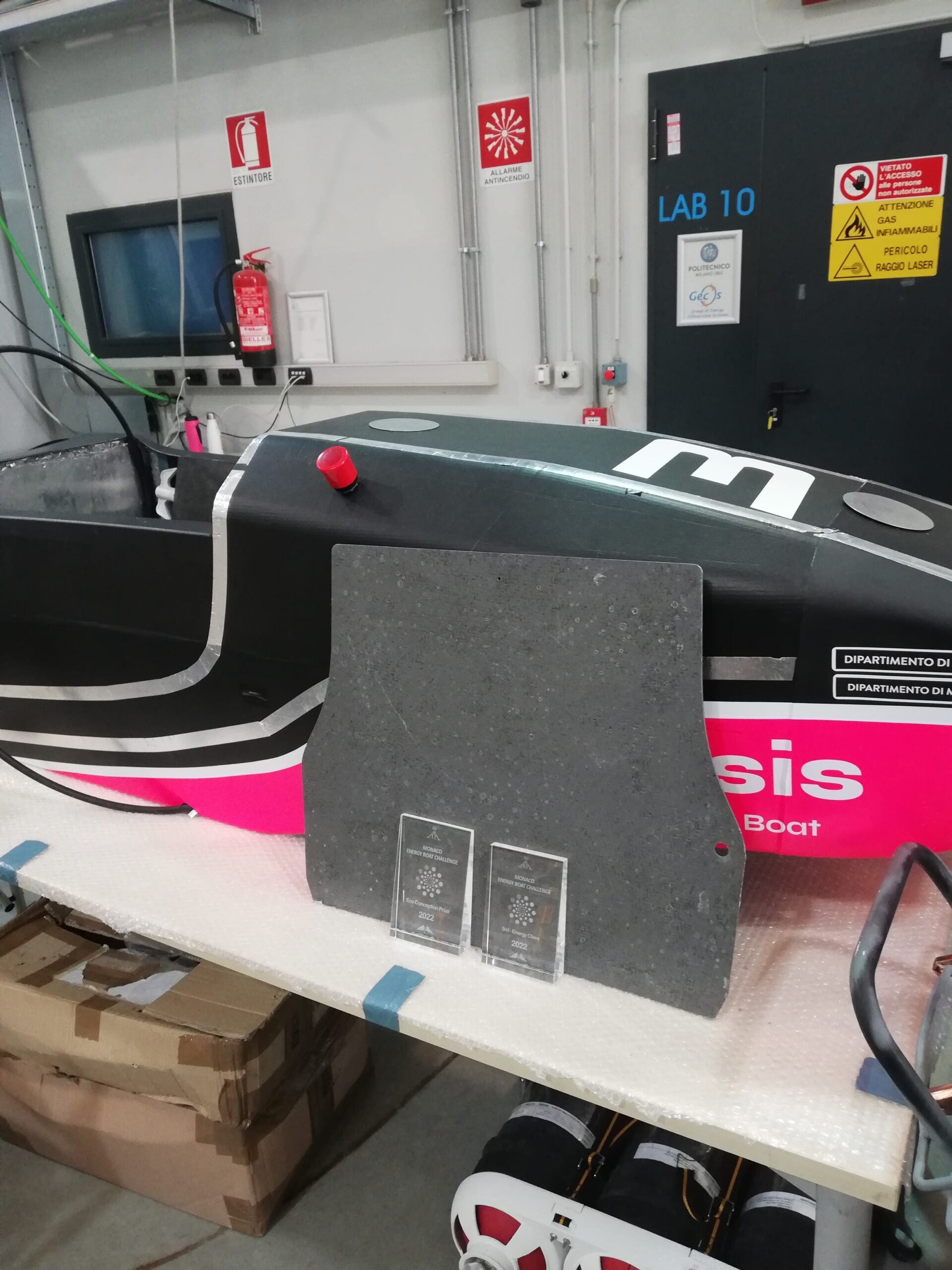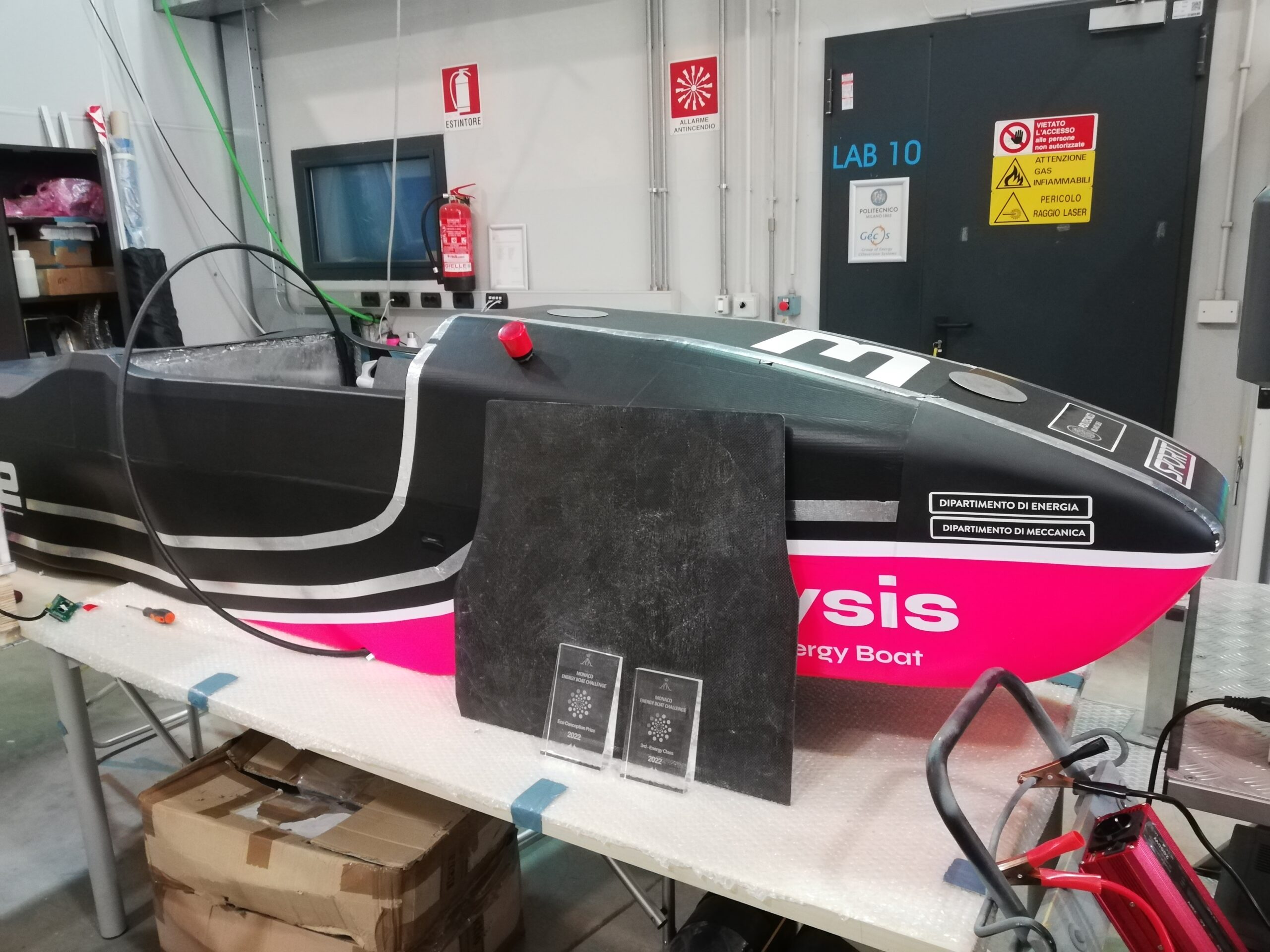BasKer-composite refers to a composite material based on basalt and ceramic fibres, obtained by pyrolysis of a manufactured product produced by warm pressing from pre-ceramic prepreg. By pre-ceramic prepreg is meant a basalt fabric impregnated with special polymer resins, capable of converting to ceramic in the event of fire or pyrolysis (i.e. high-temperature heat treatment under controlled conditions, in an industrial environment, as the last step in production).The new class of pre-ceramic prepregs (and the BasKer-prepreg in particular) is perfectly compatible with the plants already present in companies in this sector; there is at most the need to add a final pyrolysis step, which can also be carried out in plants outside the main production facility. If the component were then not intended to perform a mechanical function at high temperature, but simply to tolerate high temperatures for short periods, or fire, the pyrolysis step could even be avoided, as ‘ceramicisation’ would occur spontaneously in the fire phase. BasKer-PMC (i.e. non-pyrolysed) can be formed from prepreg, autoclaved or hot-pressed for continuous use up to a temperature of 250°C, with fire resistance class B according to EN 13501/1 for building applications. BasKer-CMC (i.e. pyrolysed) usable continuously, as a semi-structural material, up to a temperature of 600°C, with fire resistance in class A, according to EN 13501/1 reference standard for building applications (but probably also in line with EN 45545, reference standard for railway applications).















